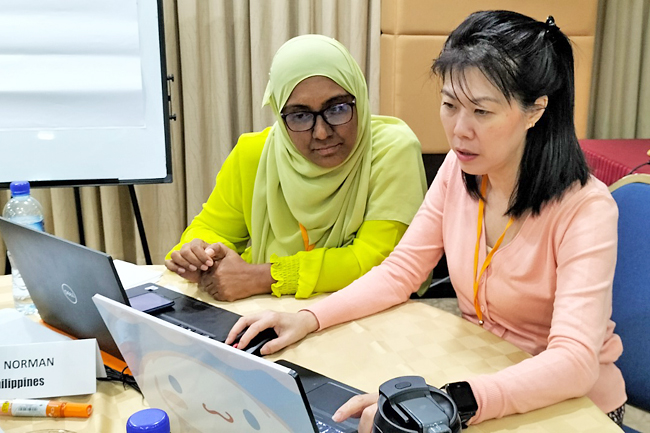The development of transferable skills is crucial in today’s ever-evolving global landscape
Technical and Vocational Education and Training (TVET) stands as a pillar of economic development, equipping individuals with the practical skills and knowledge needed to thrive in diverse industries.
However, in the face of today’s rapidly evolving global landscape, merely imparting technical skills is no longer sufficient.
As such, emphasising the development of transferable skills – versatile abilities applicable across various fields and occupations, such as critical thinking, communication, teamwork, and problem-solving – is now essential.

This critical need was highlighted by the Ambassador of Philippines to Brunei Darussalam Marian Jocelyn R Tirol-Ignacio, during the closing ceremony of the Regional Training Programme on Integrating Transferable Skills into the TVET Curriculum.
During her speech, the envoy highlighted the crucial role of integrating transferable skills into TVET. She highlighted several key reasons for this integration.
Firstly, she explained, incorporating transferable skills prepares students to adapt to the ever-changing demands of the labour market.
As industries evolve and new technologies emerge, the ability to learn, unlearn, and relearn becomes increasingly important. By fostering these skills, we empower students to navigate these changes with confidence and agility.
The ambassador also underscored that transferable skills are essential for personal and professional growth. These skills enable individuals to collaborate effectively, think creatively, and communicate clearly – qualities that are invaluable in any career path.
By embedding transferable skills into the TVET curriculum, we are not only preparing students for specific jobs but also equipping them with the tools to thrive in a dynamic and interconnected world, she continued.
Tirol-Ignacio went on to praise Southeast Asian Ministers of Education Organisation (SEAMEO) for Vocational and Technical Education and Training (Voctech) collaborative efforts in enhancing TVET, highlighting the dedication of trainers and participants.
She then encouraged stakeholders to apply the programme’s insights in their institutions, stressing the need for ongoing innovation in TVET to meet global workforce demands.
Meanwhile, the Acting Centre Director of SEAMEO Voctech Pengiran Haji Mohamad Sufri bin Pengiran Ali, in his remarks, noted that the recent two-week intensive programme signifies a milestone in their ongoing mission to strengthen and enhance the quality of TVET in Southeast Asia through targeted human resources development.
This immersive experience, he added, has been a source of inspiration, filled with dynamic interactions, valuable learnings, and shared experiences that undoubtedly left a lasting impact on all participants.
“Through their active engagement and the development of actionable plans, they have demonstrated a strong commitment to integrating transferable skills into their curriculums.
“The projects and strategies they have crafted reflect a thoughtful and innovative approach to education, promising significant benefits for learners,” he said.
He added that this programme has not only strengthened their network of educators but also underscored the importance of collaboration and continuous improvement in the field of TVET.
“As we look forward to future initiatives, the knowledge and experiences gained from this intensive programme will undoubtedly serve as a foundation for further advancements in TVET across Southeast Asia,” he added.
In a report by Coordinator and Lead Facilitator for the programme Noorhayati Cynthia Noorhaizamdin, it was highlighted that the training programme was designed to meet the growing demand for transferable skills in the workforce, essential across various industries and roles.
“Our curriculum was meticulously crafted with diverse educational tools and resources: AI-aided instructional materials, real-world case studies, integrative problem-based learning, and collaborative projects aimed at imparting both theoretical knowledge and practical application,” she said.
The programme was structured into several phases, including Educational Sessions covering fundamental concepts of transferable skills, their significance, and methods for integration into TVET curricula. Each participant subsequently drafted actionable plans during the action planning phase to effectively apply the knowledge and strategies learned to their respective institutions.
“As we conclude this programme, I eagerly anticipate witnessing the continued impact of these efforts in shaping the future of TVET education across the SEAMEO region.”
The programme was participated by 17 TVET teachers from 11 SEAMEO member countries and took place from June 24 to July 4. – Rokiah Mahmud







